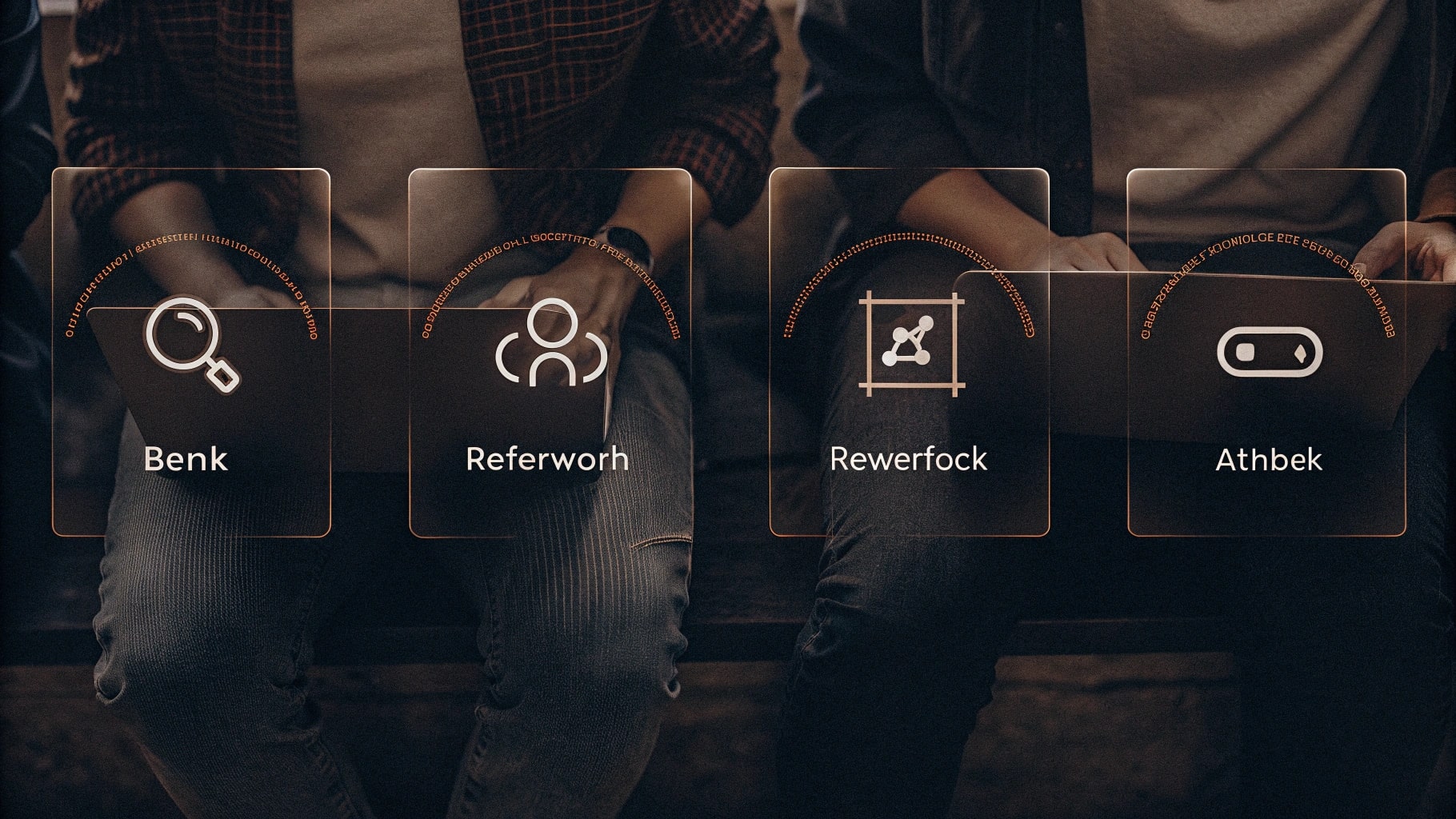SEO and Influencer Marketing: The Ultimate Guide for 2025
SEO (Search Engine Optimization) and influencer marketing are two of the most powerful digital marketing strategies in 2025. While SEO helps brands appear higher on Google searches, influencer marketing builds trust and awareness through social media creators. When these two methods are combined, they can multiply a brand’s visibility, engagement, and conversions. Influencers can create content that naturally drives backlinks, improves brand mentions, and increases search volume.
Together, SEO and influencer marketing form a cycle of discovery and credibility. Influencers introduce audiences to a brand, and when users search for it, SEO ensures the brand’s website appears at the top. This balance between organic search and social influence creates a long-lasting marketing impact that paid ads often fail to deliver.
The Evolution of SEO and the Rise of Influencer Marketing
Over the years, SEO has changed from simple keyword stuffing to creating high-quality, user-focused content. At the same time, influencer marketing has evolved from celebrity endorsements to micro- and nano-influencers who have real connections with their followers. These changes show that both SEO and influencer marketing now depend on trust, relevance, and authenticity.
As consumers ignore traditional ads, brands rely on influencers who can communicate naturally with their audiences. This rise in influencer marketing perfectly complements SEO, where Google values genuine engagement and natural backlinks more than ever. Together, they reflect the shift from “selling” to “storytelling” — making brands more human and relatable.
Why Combining SEO and Influencer Marketing is a Winning Strategy
When SEO and influencer marketing are combined, they strengthen each other’s weaknesses. Influencers can help generate high-quality backlinks and brand mentions, which improve SEO rankings. On the other hand, SEO ensures that influencer content remains discoverable in search results for months or even years, increasing its value over time.
This partnership also creates a multi-channel strategy — search engines, YouTube, Instagram, and blogs all work together to build awareness. For example, when an influencer writes a review that links to a brand’s website, it boosts both authority and referral traffic. The combination ensures that your marketing efforts are not short-lived but build continuous organic growth.
How Influencer Marketing Boosts SEO Rankings and Brand Authority

Influencers create authentic content that gets shared widely on social media and blogs. This sharing generates backlinks — one of Google’s most important ranking factors. When popular influencers mention a brand, it signals trust and authority to both their followers and search engines.
Moreover, influencer posts often lead to branded searches. When people search for a brand name after seeing it online, Google recognizes it as a sign of growing popularity. This rise in branded searches improves the website’s overall domain authority. In short, influencer marketing acts as an engine that fuels organic SEO results and long-term brand reputation.
The Role of Backlinks and Social Signals in SEO Success
Backlinks are like digital votes of confidence — the more reputable websites link to your content, the higher your SEO ranking goes. Influencer marketing naturally produces these backlinks because influencers often share brand URLs in their blogs, YouTube descriptions, or social media bios. These mentions not only increase referral traffic but also strengthen domain authority.
Social signals, such as likes, shares, and comments, may not be direct ranking factors, but they influence user behavior. A post with high engagement attracts more visitors, which can lead to more backlinks and longer on-site time. This indirect impact plays a key role in improving your SEO visibility.
Choosing the Right Influencers for SEO-Focused Campaigns
Selecting the right influencer is the foundation of any successful SEO-driven campaign. It’s not about choosing someone with the largest following, but someone whose audience aligns with your brand. Micro-influencers, for instance, often have higher engagement rates and more authentic connections with followers compared to celebrities.
You should also analyze influencers’ domain authority if they have blogs or YouTube channels. Collaborating with influencers who create SEO-rich content ensures your backlinks are valuable. Tools like HypeAuditor, BuzzSumo, and SEMrush can help identify influencers with the best SEO potential for your campaign.
Content Collaboration: Creating SEO-Friendly Influencer Content
Content collaboration should focus on creating material that is both engaging for followers and optimized for search engines. This includes using targeted keywords, writing in-depth articles, and adding links to your brand’s website in a natural way. Blog collaborations, video tutorials, and product reviews are great examples.
To make influencer content SEO-friendly, you can guide influencers on keyword placement, internal linking, and meta descriptions. When influencers follow SEO best practices, the content stays visible in Google searches long after the campaign ends, providing ongoing value to your brand.
Tracking SEO Performance Through Influencer Campaigns
Measuring the success of influencer marketing in SEO terms is essential. You can track improvements in website traffic, keyword rankings, backlinks, and domain authority. Google Analytics, Ahrefs, and Moz are excellent tools for monitoring these results.
Additionally, tracking referral traffic from influencer posts helps you understand which creators are delivering the most value. You can also measure increases in branded search volume or engagement metrics. By analyzing these KPIs, brands can fine-tune future campaigns for better SEO outcomes.
Common Mistakes to Avoid When Merging SEO and Influencer Marketing
One common mistake brands make is working with influencers who don’t match their niche. This leads to irrelevant backlinks and low-quality traffic. Another mistake is ignoring SEO in influencer content — failing to include keywords, metadata, or proper linking structures.
Brands should also avoid focusing only on short-term goals. Influencer marketing and SEO take time to show results. Consistency and relationship building with influencers yield stronger long-term growth than one-time collaborations.
Best Tools to Analyze and Improve SEO + Influencer Campaigns

Several digital tools can help manage SEO and influencer strategies more effectively. SEMrush, Ahrefs, and Moz are great for backlink and keyword analysis. For influencer tracking, BuzzSumo, HypeAuditor, and Upfluence offer insights into engagement rates, audience quality, and niche relevance.
By combining insights from these tools, you can identify which influencers are best for your SEO goals. Regularly tracking performance ensures your strategy stays updated with current trends and Google algorithm changes.
Case Studies: Successful SEO and Influencer Marketing Campaigns
A good example is how beauty brands like Glossier used micro-influencers to promote their products. Influencers wrote blog reviews and YouTube tutorials that linked back to Glossier’s website. These backlinks helped Glossier dominate Google results for beauty-related keywords.
Similarly, tech brands like HubSpot collaborated with marketing influencers who created SEO-optimized articles and webinars. The content generated massive traffic, brand mentions, and backlinks — proving how influencer marketing can power up SEO results when done strategically.
Future Trends: The Next Phase of SEO and Influencer Partnerships
The future of SEO and influencer marketing will rely heavily on AI-driven personalization and voice search. Influencers will start using long-tail keywords and conversational content to match voice search trends. Meanwhile, SEO will focus more on experience-driven metrics like engagement, trust, and content depth.
We’ll also see more data-driven collaborations where influencers and SEO teams share analytics. This integration will help brands create campaigns that are not only creative but also performance-oriented. The future clearly belongs to those who combine both art and analytics.
Conclusion: Building Long-Term Growth with SEO and Influencers
In conclusion, combining SEO and influencer marketing is no longer optional — it’s essential for digital success. Together, they build trust, improve rankings, and create long-lasting brand visibility. Influencers help attract audiences, while SEO ensures your brand stays discoverable long after the campaign ends. Brands that master this synergy can enjoy steady organic growth, better engagement, and stronger authority in their niche. It’s not just about getting clicks — it’s about building relationships and credibility that last.
FAQs – Understanding SEO and Influencer Marketing in Detail
Q1. How does influencer marketing help SEO?
It helps by generating backlinks, increasing brand mentions, and driving organic search traffic.
Q2. What type of influencers are best for SEO?
Micro and niche influencers are ideal because they have loyal audiences and create authentic content.
Q3. Can social media posts improve SEO rankings?
Indirectly, yes — high engagement and shares increase visibility and traffic, which boost SEO.
Q4. How long does it take to see SEO results from influencer marketing?
Usually 3–6 months, depending on the campaign quality and content consistency.
Q5. Which tools are best for tracking influencer SEO performance?
Google Analytics, SEMrush, and BuzzSumo are great for tracking backlinks and traffic impact.
Q6. Can YouTube influencers help in SEO?
Absolutely. YouTube videos often rank high on Google and drive backlinks to brand websites.
Q7. What are branded searches, and why are they important?
Branded searches show how many people search for your brand name — a key trust and SEO signal.
Q8. Should influencers use keywords in their content?
Yes. Keyword optimization ensures their posts rank on Google and bring long-term visibility.
Q9. Are backlinks from influencer blogs valuable?
Yes, backlinks from reputable influencer blogs can greatly improve domain authority.
Q10. Is influencer marketing suitable for small businesses?
Definitely. Small businesses can use local or micro-influencers for affordable, targeted SEO growth.
Related Post: